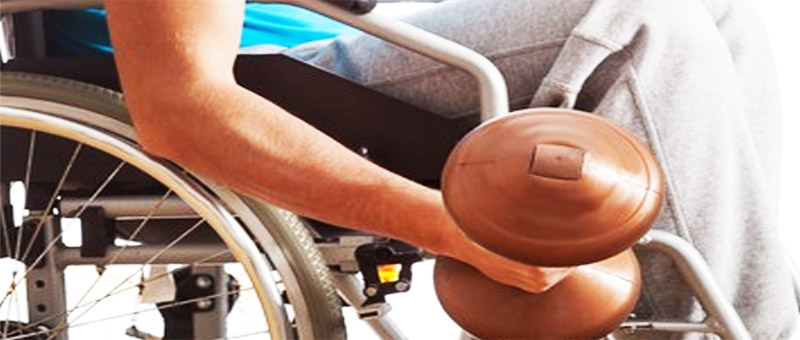Category - Health & Fitness
You can beat the gloomies by creating an outdoor space complete with lovely outdoor furniture. A table and some comfortable chairs will beckon the most reluctant person outside and encourage you to stay there for just a bit longer. If you like gardening, perhaps you could do some while you are outside and that would be one good way to get some much-needed exercise.
There are many reasons for people to suffer from depression. Sometimes there is the need for prescription medication, but not always. It is possible to beat some kinds of depression by changing your lifestyle. Spending time outside in the fresh air and sunshine can be a good antidote to some types of depression, especially SAD. But some SAD sufferers live in areas where there is no sunshine for weeks or months on end, which is why they suffer from this form of depression.
However, for people who just feel a bit gloomy or irritable, going outside for a while can be really helpful. It seems to be because of the change of pace and environment. You have more space when outside instead of being enclosed in a small space, often with many other people. Just being out in fresh air and sunshine makes you feel good. If you can participate in some kind of exercise it is even better.
Continue reading
There are many ways a person with a disability can get fit, but what they can do depends on the level of disability and where it affects them. Here are some ideas to get fit for a wide variety of disability levels.
Swimming – people with only one limb can actually swim, as amazing as that seems, so swimming will suit many disabled people. It is an ideal way for them to get fit and train their bodies to make the best out of their remaining muscles. It also trains the heart and lungs to get fit.
Aqua-aerobics is also a good way to get fitter if swimming is not your thing. The water helps to support you and exercises can be done without putting too much pressure on painful areas.
Aerobics is another form of exercise that can contribute much to the cardiovascular system, help with weight loss and generally help to maintain fitness levels. It is important to make sure you breathe deeply during exercises as this helps to improve the capacity of your lungs.
Continue reading
There are many ways to achieve and maintain fitness, but not every way is suitable for every person. Younger people who are relatively fit to start with can get away with the more energetic kinds of group fitness training, such as Body Pump, Body Attack and other Les Mills inspired fitness training routines, but those who are very overweight or unfit should not jump in at the deep end. It is wiser to start off with something that is easier otherwise you’ll risk injury that could put you out of getting fit for months.
If you are young and healthy but not fit, start off slowly and gradually increase your regime whatever you choose. This is where the services of an experienced personal trainer can come in handy. They should be able to draw up a plan for getting you fit without any injuries. They can keep an eye on you to ensure you do the exercises properly and make sure you don’t overdo it. They will also tell you when it is safe to increase your efforts to get even more fit.
Older people really do need to take up some form of exercise to keep in good shape, but if you have any health issues you should seek the okay from your doctor first. People with arthritis should avoid any kind of exercise that will jar their joints including running or jogging. They are better off exercising with swimming, aqua aerobics, cycling or walking. They should exercise in a way that stretches their joints carefully to increase their range of movement.
Continue reading
Our health is directly related to what we eat; the old saying, you are what you eat is true to a great degree. Many diseases are caused by poor eating habits and the obesity it often causes. Heart disease, Type 2 diabetes and even some types of cancer can be caused be eating the wrong food or highly processed foods that lack nutrition.
Poor eating habits start from childhood and can be caused by parents not taking enough time to find out what is the right way to eat for health. And often when both parents have to work it is an easy choice to purchase fast foods or foods that come out of a packet. Even foods from the freezer section of the supermarket are not as healthy as natural foods, especially if they are processed and pre-cooked.
What are the healthiest foods?
Food that looks as close to nature as possible is the healthiest. Fresh fruit and vegetables that are steamed quickly and lightly without any additives such as salt or fats are good. Raw vegetables are also very healthy in most cases, although some are difficult to digest. However, they can be grated to make it a bit easier on the teeth and digestion. Some vegetables should not be eaten raw. Potatoes may not be clean enough to eat raw and if they have any green flesh on them it should be avoided as it contains a poison when not cooked.
Continue reading
- When a person develops an eating disorder such as Anorexia Nervosa or Bulimia it should not be taken lightly. This is a psychiatric disease that can cause early death either through illness or from suicide. If you suspect your child has this condition it is essential to get treatment for them as soon as possible. This is highly likely to be both medical and psychiatric in nature.
Recovery is a very long and slow process and so family and friends must all know how to cope, both with the sufferer and the stress of the situation. Here are some tips to help.
- An eating disorder often affects the sufferer’s sense of identity. You need to remember – and help them to remember – that the disease is not who they are. It is essential to point out to them often that they are more than their disease. This helps to increase their sense of self worth.
- Encourage the sufferer to tell you how they are feeling on a regular basis. It is important to communicate openly with them about their illness and their feelings. It is also essential not to be judgemental or negative in any way. Be positive with them all the time and tell them you are sure they will soon be well, even if you don’t feel like it.
- Learn about the eating disorder that your loved one has so you can better understand what they are going through and how they feel. It will also help you understand what is happening to them. Knowing about the disease is the key to understanding.
Continue reading
When you have some or a lot of missing teeth, most dentists will advise you that dentures are usually the answer as they cost much less – at least initially, than procedures such as dental implants. Most people get them so they can chew their food, or for aesthetic reasons as a dark gap in the line of teeth looks unsightly. However, there are other benefits that most people don’t even think about.
- They help to maintain the shape of your lower face. Without them your cheeks sink in and give a gaunt look to your face.
- They reduce pressure on your remaining teeth – and the crowns or fillings that may be on those teeth.
- Having dentures reduces the likelihood of having problems with your jaw.
- They also prevent the teeth that are left from moving and changing your bite, which can cause pain as it puts pressure on places that are not meant to withstand it.
- When there is a gap between teeth, those that are next to the gap tend to move into it to try and fill it up. This makes them crooked and more liable to decay, since they are then more difficult to keep clean.
- You can speak more clearly when you have a mouthful of teeth.
- Last but not least, you can chew food better when you have all the teeth in place. This can help your digestion and so, your health.
Continue reading














